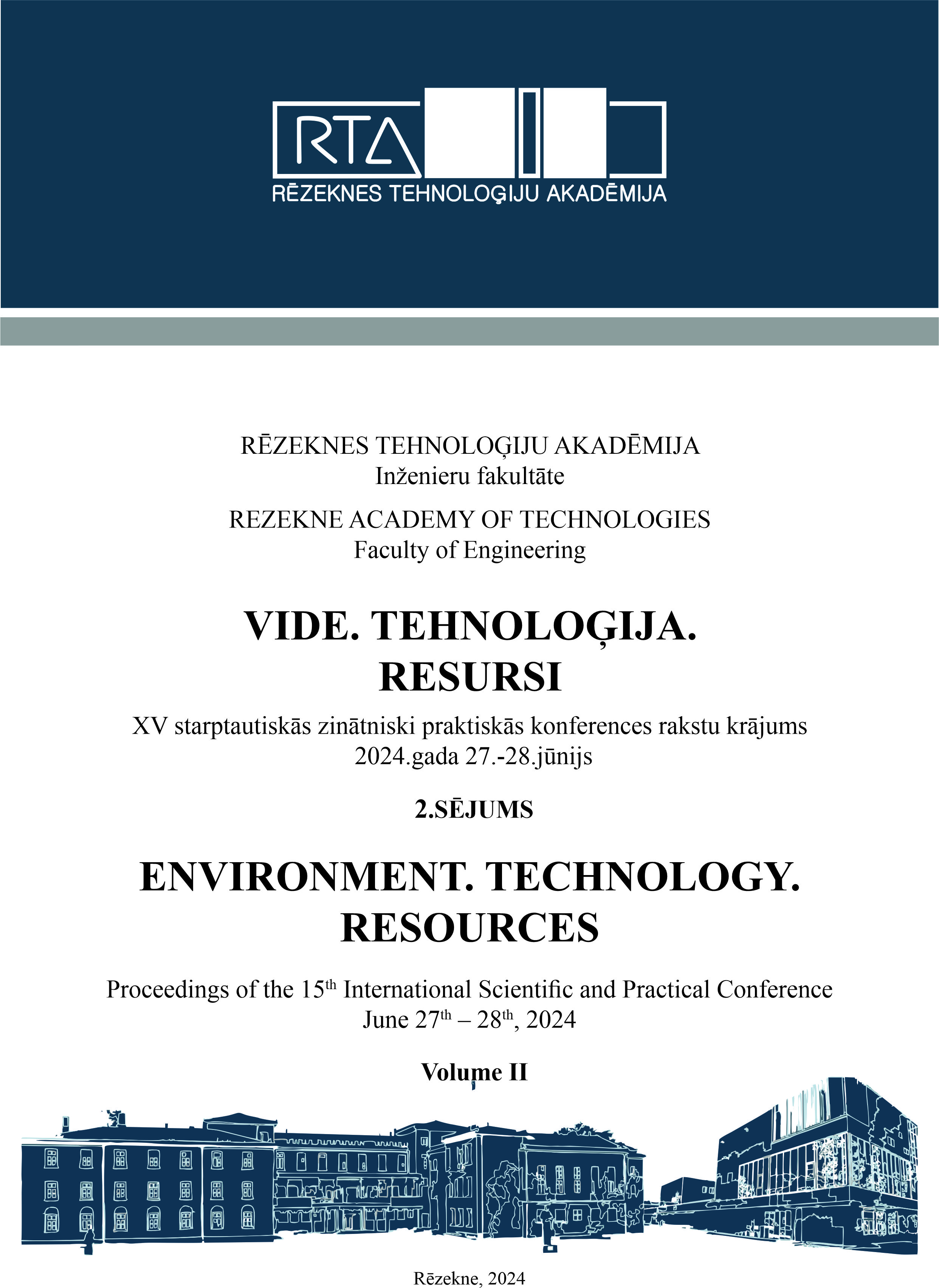A GENERALIZED NET MODEL OF COMMAND AND CONTROL SYSTEM
DOI:
https://doi.org/10.17770/etr2024vol2.8035Keywords:
Generalized net, modeling, command and control systems, armed forcesAbstract
The relevance of the topic is related to the search for ways to support management in the military field by improving the command and control system (C2-system) of the armed forces. The purpose of the paper is to present an original generalized net model (GN-model) of a command and control system for the needs of the armed forces, including three main elements - personnel, structure and equipment, procedures. Through the integration of these three elements in the created GN-model to provide an opportunity for more detailed testing of different implementation options of the C2-system, even before its implementation in the process of managing the armed forces. To verify the GN-model, a simulation was performed in the GN IDE simulation environment and some results are presented. Some possible applications of the GN-model for the analysis and improvement of the C2-system of the armed forces are described.References
K. Atanassov.Theory of Generalized nets (an algebric aspect). AMSE Review, 1, №2, 27-33, 1984.
K.Atanassov, (ed.). Applications of Generalized nets. World Scientific, Singapore, New Jersey, London 1993.
K, Atanassov. Generalized Nets, World Scientific, Singapore, New Jersey, London 1991
K., Atanassov, Intuitionistic Fuzzy Sets: Theory and Applications. Springer-Verlag, 1999
N, Angelova, M. Todorova and K. Atanassov.(2016) GN IDE Implementation, improvements and algorithms. 69.411-420
P., Boyanov, Using a specialized software for comprehensive monitoring the suspicious states in computer networks, a refereed Journal Scientific and Applied Research (Licensed in EBSCO, USA), Konstantin Preslavsky University Press, ISSN 1314-6289, vol. 6, 2014, pp. 148-154.
D.G. Dimitrov. GN IDE – A software tool for Simulation with generalized nets. Proceedings of Tenth International Workshop on Generallized nets, Sofia, 2009, 70-75.
Hr. Hristov, P. Boyanov, and T. Trifonov. Approaches to identify vulnerabilities in the security system of the social organization and computer resources, a refereed Journal Scientific and Applied Research (Licensed in EBSCO, USA), Konstantin Preslavsky University Press, ISSN 1314-6289, vol. 5, 2014, pp. 101-107.
A. Kolev, and P. Nikolova, Instrumental Equipment for Cybe-rattack Prevention, Information & Security: An International Journal 47, no. 3 (2020): 285-299. https://doi.org/10.11610/isij.4720
V. Tselkov, and N. Stoianov. E-net models of a software system for web pages security. Mathematics and mathematical education, Sofia, Bulgaria, BAS, 2003.
К. Александрова, Ив. П. Иванов, Архитектура на пасивна бистатична радарна система базирана на DVB-T сигнали и софтуерно-дефинирана платформа, "Сборник доклади от международна научна конференция "Хемус 2016", стр. III-193 – III-201, ISSN 1312-2916, 2016 г.
К. Александрова, Ив. П. Иванов, Перспективни радари срещу електронните заплахи на съвременното бойно поле. "Сборник доклади от международна научна конференция "Хемус 2016", стр. III-202 – III-210, ISSN 1312-2916, 2016 г.
Доктрина на въоръжените сили на Р България, 2017 г.
https://www.mod.bg/bg/doc/strategicheski/20171211_Doktrina_VS.pdf
М. Кочанков, Р. Илиев. Предизвикателства и направления за развитие на системата за командване и управление. Сборник доклади от международна научна конференция „Хемус 2020“, стр. 81 – 87 г. Пловдив, 2020 г.
Св. Спасов. Международни академични програми и модели за обучение по противодействие на корупцията и приложението им в УНСС. Научни трудове на УНСС, 69-95 стр., 2022 г.
Св. Спасов. Европейска архитектура за сигурност. Книга, Издателство на УНСС, ISBN: 978-954-644-340-3, 2012 г.
С. Р. Маринов, Иван П. Иванов, А. А. Колев, Моделиране на управляема комуникационна среда, Сборник доклади от Научна конференция „Съвременни тенденции в авиационното обучение”, НВУ „В. Левски”, Факултет”Авиационен” – Долна Митрополия, 2017 г., ISBN 978-954-713-110-1
Downloads
Published
Issue
Section
License
Copyright (c) 2024 Rosen Iliev, Miroslav Kochankov

This work is licensed under a Creative Commons Attribution 4.0 International License.



